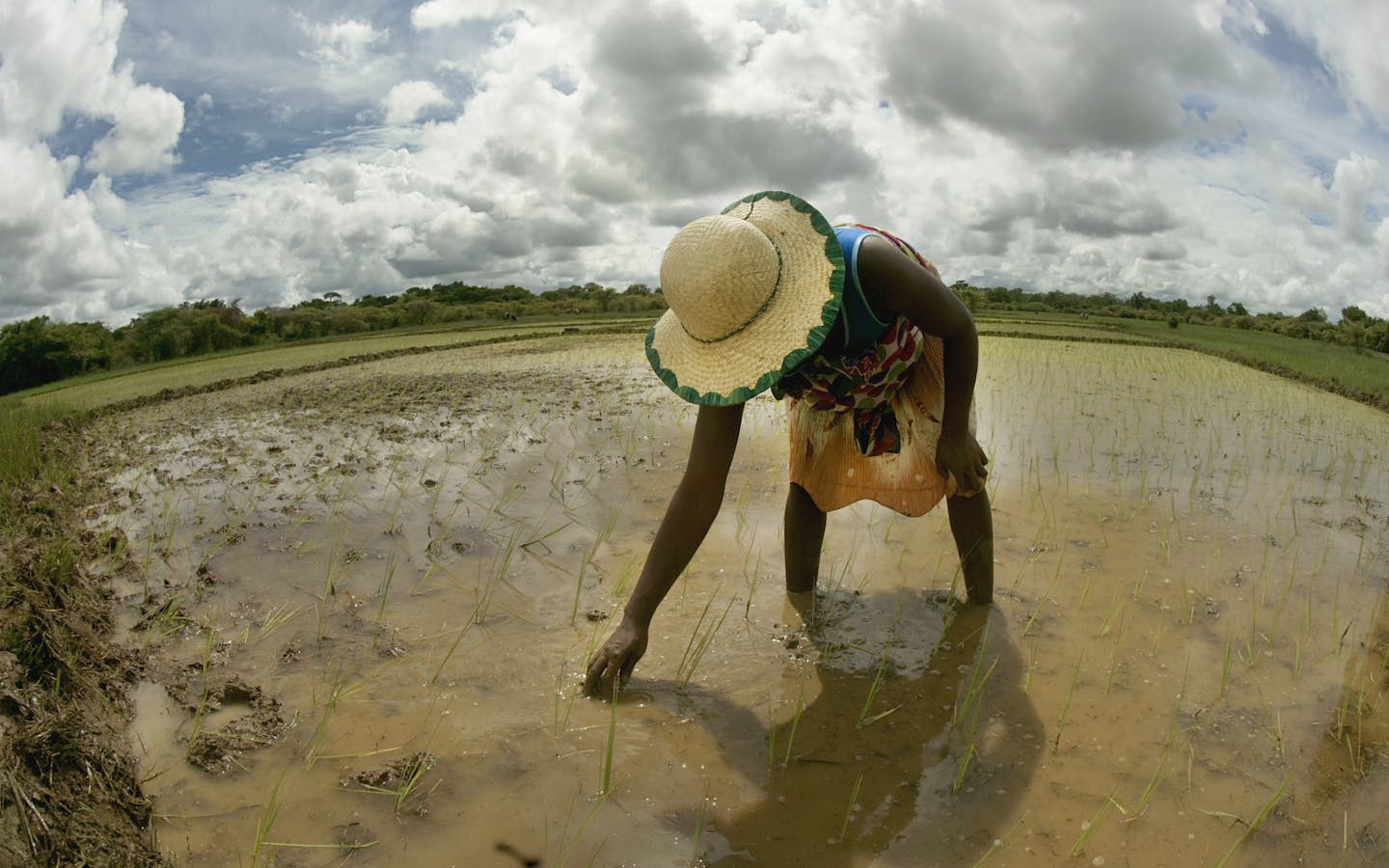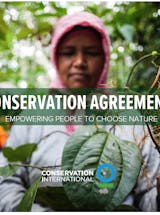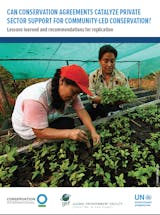In many parts of the world, communities are using their land, water and other natural resources in unsustainable ways — simply because there is no economic alternative.
Bridging Conservation & Development
When conservation offers concrete benefits to rural farmers and local communities, protecting the environment becomes an increasingly viable and attractive choice. Our Conservation Stewards Program (CSP) partners with communities who agree to protect their natural resources — and the benefits they provide — in exchange for compensation from investors. This approach helps conserve biodiversity while improving the quality of life for local communities.
CSP’s conservation agreement model offers direct incentives for conservation through a co-designed benefit package in return for conservation actions by communities. Thus, a conservation agreement links conservation funders — governments, bilateral agencies, private sector companies, foundations, individuals and others — to people who own and use natural resources.
Benefits typically include investments in community enterprises, regenerative agriculture, strengthening communal governance, and social services like health and education. Benefits can also include direct payments and wages for conservation actions like monitoring and patrolling protected areas. The size of these benefit packages depends on the cost of changes in resource use, as well as conservation performance. Rigorous monitoring verifies both conservation and socioeconomic results.
Why Conservation Agreements?
Conservation agreements help local people drive solutions to conservation challenges.
The terms of conservation agreements are co-designed with local communities, and they are tailored to specific situations and needs.
Conservation agreements deliver concrete, measurable benefits for human well-being.
Conservation agreements offset the opportunity cost of choosing conservation.
By the numbers
5.6 million hectares under improved management
Since 2005, CSP has worked with communities and NGO partners worldwide, with more than 3,000 community and individual agreements signed in 20 countries, benefiting a total of 147,000 people and leading to the protection of 5.6 million hectares of key habitat.
To date, CSP has committed $7 million in grants.
Our solutions
Engaging the private sector
Given the popularity of the conservation agreements model with private-sector partners, Conservation International launched the Conservation Agreements Private Partnership Platform (CAPPP) in 2015 to catalyze private-sector support for biodiversity conservation and maintenance of ecosystem services in globally important sites. Between 2015 and 2020 — with support from the GEF Earth Fund and in collaboration with the United Nations Environment Program as implementing agency — the CAPPP forged mutually beneficial links between the private sector and local communities or landowners who commit to achieve biodiversity conservation, reduce land degradation, support climate regulation efforts and promote sustainable natural resource management.

At its conclusion, the CAPPP include 10 projects in 9 countries, each with unique environmental and socioeconomic objectives and metrics. Key results included:
- 1.2 million hectares (3 million acres) of areas important for nature under improved management across the portfolio
- 27,000 people directly benefitting through conservation agreements
- Improved water production and improved management of 64,000 hectares (158,000 acres) of key watersheds in Bolivia, benefiting over 500 families
- New market access for livestock farmers from sustainably managed rangelands around Kruger National Park and Succulent Karoo Biodiversity Hotspot in South Africa
- Protection of important mangrove forests and key species by communities on Colombia’s Pacific coast
Importantly, communities are still protecting these areas and benefitting from their own stewardship today — well beyond the CAPPP’s initial investment. When properly designed, conservation agreements can be used to transition to economically sustainable ways of living with nature.
To learn more about this initiative and our recommendations for replicating, please read the following report: "Can conservation agreements catalyze private sector support for community-led conservation?"
Supporting pro-nature community enterprises
One of the greatest opportunities conservation agreements offer for improving well-being in local communities lies in fostering nature-friendly enterprises. In 2020, leveraging experience from the CAPPP, we launched the “Pro-nature Enterprises for the People of Southern Africa” project. With funding from the French Development Agency, this project supports rural African communities who voluntarily commit to implement planned grazing of their livestock to minimize overgrazing, remove invasive vegetation that hampers the growth of grasslands and water availability, adopt practices that mitigate human-wildlife conflict, and adopt sustainable fisheries practices among other measures identified in consultations with local communities.
In turn, they receive support to improve the quality of their livestock, reduce animal losses from wildlife predators, access facilitated livestock markets and receive support for sustainable fishing gear.
To foster sustainability and local ownership, the project is supporting these same communities to initiate investable community-based, nature-friendly rural enterprises that can deliver environmental and social outcomes. This will include strengthening their partnerships with private sector impact investors.
The project is implemented in Mnisi tribal lands (Kruger to Canyons, South Africa), Habu and Eretsha Communities (Okavango Delta, Botswana) Simalaha community (Zambia), Mvenyane communities (Eastern Cape, South Africa), and Chiawa community (Lower Zambezi-Mana pools in Zambia and Zimbabwe border). The field implementing partners are Peace Parks Foundation (PPF), Conservation South Africa (CSA), Wild Entrust, Communities Living among Wildlife Sustainably (CLAWS) and Conservation Lower Zambezi (CLZ).
The overarching goal of Pro-nature is to restore and conserve 1 million hectares of biodiversity-rich habitats, and directly benefit 30,000 people in three critical Trans-frontier Conservation Areas (TFCAs) in South Africa, Botswana, Zambia and Zimbabwe.
PUBLICATIONS
Videos
A Shared Vision for a Healthy Future
The Conservation Stewards Program celebrates 15 years of conservation agreemeents in 2020.
Conservation Agreements in Alto Mayo, Peru
Contact Us
- Zachary Wells - Managing Director
- Juliette Crepin - Senior Manager
- Amos Thiong’o Mwaura - Director for Africa
- Alejandro Rosselli - Director for Latin America
- Leonard Akwany – Freshwater Director
- Corle Jansen - Pro-nature Enterprise Project Manager
- Lena Kedukaetswe - Enterprise Development Manager






